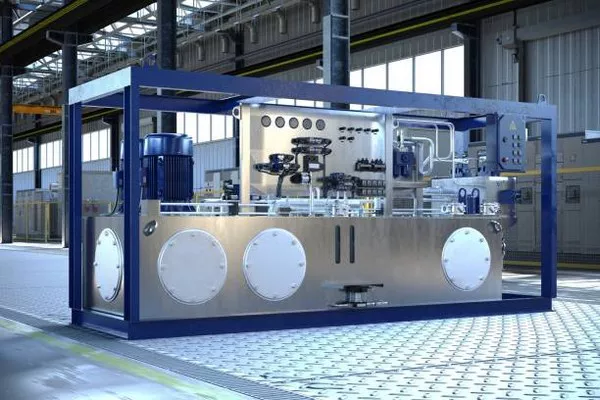Air compressors are versatile tools that find applications in various industries and DIY projects. They provide a steady source of compressed air, which can power tools, inflate tires, and perform numerous other tasks. With a wide range of options available in the market, it can be challenging to determine what the best air compressor is for your specific needs. In this article, we will explore the key factors to consider when choosing an air compressor, and we will provide insights into the top options available to help you make an informed decision.
Understanding Your Needs
Before you start searching for the best air compressor, it’s essential to assess your specific requirements. Different air compressors are designed for various tasks, so a one-size-fits-all approach may not be the best strategy. To determine your needs, consider the following factors:
Type of Applications: Are you using the compressor for home improvement projects, professional woodworking, automotive repairs, or industrial tasks? Different applications require different levels of air pressure and air volume.
Portability: Will you need to move the compressor around frequently, or will it stay in a fixed location? Portability is a crucial factor, especially for those who need to use the compressor in various locations.
Power Source: Do you have access to electrical outlets, or do you need a gas-powered compressor? This decision depends on your working environment and power availability.
Noise Level: Is noise a concern? Some air compressors can be quite loud, which can be problematic if you are working in a shared space or a noise-sensitive environment.
Tank Size: The tank size determines the amount of stored compressed air. If you require a continuous air supply, a larger tank is essential.
Air Tools: Consider the air tools you plan to use with your compressor. Different tools require different levels of CFM (cubic feet per minute) and PSI (pounds per square inch).
Now that you have a clear understanding of your specific needs, let’s explore the different types of air compressors and their suitability for various applications.
Types of Air Compressors
There are three primary types of air compressors: reciprocating (piston), rotary screw, and centrifugal. Each type has its unique characteristics and is suited to different applications.
Reciprocating Air Compressors: Reciprocating compressors use a piston and cylinder to compress air. They are typically more affordable and are suitable for a wide range of applications, including inflating tires, operating pneumatic tools, and powering small air systems. They are available in both oil-lubricated and oil-free models. Oil-lubricated compressors are more durable and suitable for continuous use, while oil-free models are more environmentally friendly and require less maintenance.
Rotary Screw Air Compressors: These compressors are commonly used in industrial settings due to their efficiency and continuous operation. They work by two rotors that compress air as they rotate. Rotary screw compressors are known for their reliability and are capable of delivering a constant supply of compressed air at high volumes. They are ideal for powering heavy machinery and industrial applications.
Centrifugal Air Compressors: Centrifugal compressors are large and powerful units typically found in large industrial operations. They use centrifugal force to compress air and are suitable for applications requiring a significant amount of compressed air at high pressures.
Choosing the Best Air Compressor for Your Needs
Now that you understand the types of air compressors, let’s delve into selecting the best one for your specific requirements.
Tank Size: The tank size is a crucial consideration. For intermittent use in small tasks, a smaller tank (typically 6-20 gallons) may suffice. However, if you need a continuous air supply for larger tasks, a larger tank (20 gallons and above) is advisable.
CFM and PSI Requirements: Consider the CFM and PSI requirements of the air tools you plan to use. Make sure the air compressor you choose can meet or exceed these requirements. It’s essential to have some buffer capacity to ensure efficient tool operation.
Portability: If you need to move your compressor frequently, look for a portable model with handles and wheels. Smaller reciprocating compressors are often the best choice for portability.
Power Source: Consider whether you have access to electricity or if you need a gas-powered compressor. Gas-powered units are more portable but can be noisy and produce emissions.
Oil-Lubricated vs. Oil-Free: Depending on your application, you can choose between oil-lubricated and oil-free models. Oil-lubricated compressors are more durable and suitable for continuous use, while oil-free models are more environmentally friendly and require less maintenance.
Top Air Compressor Options
To help you make an informed decision, here are some top air compressor options in different categories:
Best Portable Air Compressor: The California Air Tools 8010A is an excellent choice for those who need a lightweight and quiet portable air compressor. It’s oil-free, has a 8-gallon tank, and provides 2.2 CFM at 90 PSI.
Best Budget Air Compressor: The Bostitch BTFP02012 is a reliable and affordable choice for small to medium tasks. It features a 6-gallon tank and delivers 2.6 CFM at 90 PSI.
Best Industrial Air Compressor: The Ingersoll Rand 2340L5-V is a robust rotary screw compressor designed for heavy-duty industrial applications. It offers a 60-gallon tank and can deliver high volumes of compressed air continuously.
Best Gas-Powered Air Compressor: The Dewalt DXCMLA1983054 is a powerful gas-powered compressor suitable for remote job sites. It has a 30-gallon tank and provides 17.3 CFM at 175 PSI.
Conclusion
Selecting the best air compressor for your needs requires careful consideration of your specific requirements, application, and available resources. With various types and models available, you can find the perfect fit by evaluating factors like tank size, CFM, PSI, portability, and power source. It’s also important to choose a reputable brand known for reliability and performance. By taking these considerations into account and exploring the top options in the market, you can confidently select the best air compressor to enhance your productivity and tackle your tasks effectively.

